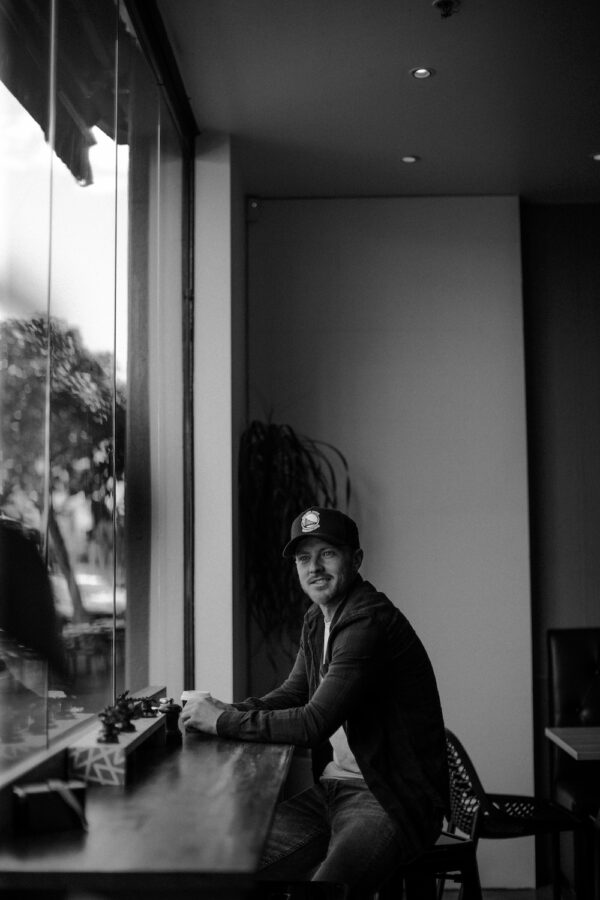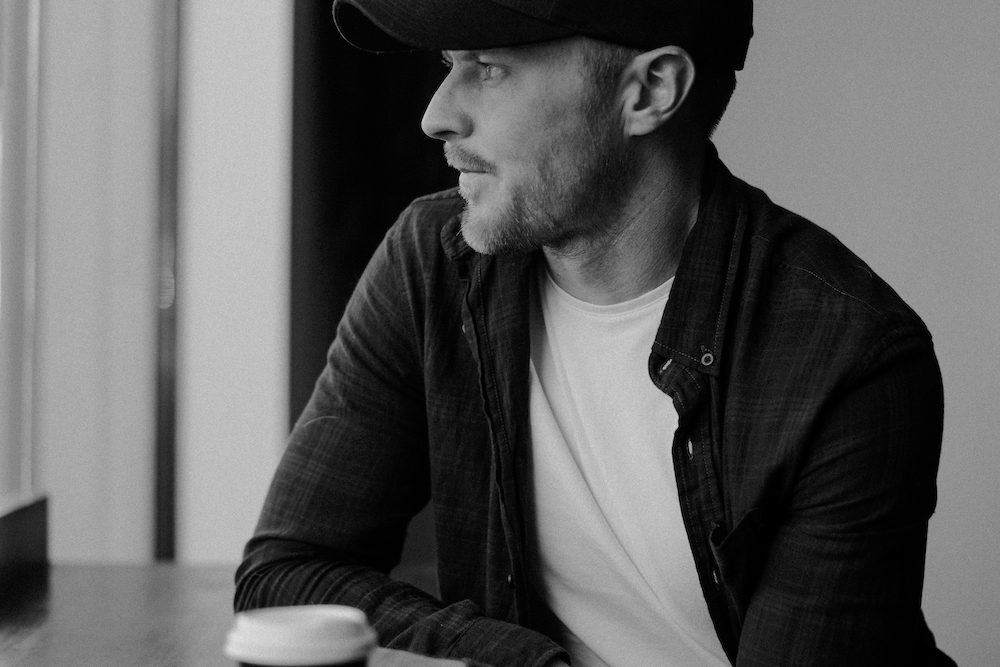
Being a leader of a football club is a special thing. While some players are naturals and others have to work to develop and maintain their skills, the quality of a club’s leadership can often serve to make or break them over a course of a long season.
When things are going poorly, leaders in the dressing room are able to hold a team together. They are able to get a team working towards a common cause, unite them in the face of adversity and support those that are experiencing a poor run of form. When things are going well, the leader is there to ensure that feet are kept firmly on the ground until the job is done and that everyone – from the wiliest veteran to the greenest youngster – is doing their part to ensure continued success. With Scott Jamieson approaching his 250th appearance in the A-League, we caught up with the Melbourne City FC captain to discuss how his experiences have moulded him into a leader.
Words by Joey Lynch, photos by Aleksander Jason.
In over almost a decade as a professional footballer, with stints at Adelaide United, Sydney FC, Perth Glory, Western Sydney Wanderers, IFK Göteborg and Melbourne City, Scott Jamieson had never been a captain.
“I was never an official captain. I wore the armband once or twice at Glory but never was appointed captain.“
That changed, though, ahead of the 2018/19 A-League season. Following the departure of Michael Jakobsen to Adelaide, then-City Head Coach Warren Joyce made the four-time Socceroo the seventh captain in club history.

Joining a small fraternity that included the likes of Simon Colosimo, Patrick Kisbnorbo, Harry Kewell and Tim Cahill, the role came with an adjustment period for Jamieson.
Never shy about expressing his thoughts or views, he now had to learn how to incorporate the responsibilities of captaining an A-League side while still maintaining the personality traits that had earned him the honour in the first place.
“I think, prior to becoming captain, I’d always been a person that has voiced his opinion and, I’ve openly admitted, sometimes wrongly. And I say wrongly not in a bad way, but wrongly in terms of the wrong time.
“I’ve always felt my opinion is one that is calculated and one that I feel comes from a good knowledge off football. I’ve always been one to read up on football, whether it be world football or local football and in terms of the game, I definitely feel my opinion is something is one that would be helpful to a team.
“I think [Joyce] saw that and kind of pushed me to start acting more like a leader – not just speaking it. He pushed me and kind of awoke it inside of me.
“Not that I wasn’t acting like a leader before, but I’m always a jovial person, a joker and one that likes to push buttons and stir things up. It was about leading and reigning that in a little bit.

“I’ve always been a shit-stirrer. I’ve always been one to push buttons and I still am. I believe it’s about moderation. For me, being captain is a great honour but you’re only as good as the people around you and I’ve got some really strong-minded people in the team that voice their opinion too.
“I believe managing a group of people has made me manage my life a little better and structure my life a little better. Managing can consist of a lot of things, and this is just little things: organising dinners, organising the players for certain times for this and that.
“It’s probably helped me with my own personal life in regard to organising my own life.”

Jamieson’s on-field character – being a ‘shit-stirrer’ – is one that simultaneously makes him loathed and loved.
If he’s wearing your team’s shirt, it’s the type of behaviour you want to see exhibited by your players; a willingness to fly the flag and never step down.
If you’re against him?
“On the pitch, I’ve never gone out with the mindset of I’m going to get under [someone’s] skin, it’s never been the case.
“I’m just a competitive bastard. When someone wants to go at me, I’ll go straight back at them. Sometimes I could control that better but other times I think it’s not about taking a backwards step.
“I’m going to look you straight in the eye and compete against you and that’s going to be physically and verbally. And I expect someone to come right back at me.”
To conduct oneself in such a manner requires no shortage of confidence and, as Jamieson alluded to, his conviction is born not only from within, but also a belief in his well researched understanding of the game and his place in it.

“I’ve always had a great interest in reading about football. I’ve always had a great interest in reading the papers.
“When I was in England [as a youth player for Bolton] I’d buy a paper every day. Coming back to Australia I’ve always read the English papers online and I remember buying the Australian and British Soccer Weekly. The first half of the paper was about local football and then the back half would be the Premier League and Europe.
“I play football manager, it’s a case of me diving into world football on a different kind of platform, in terms of gaming. Even now, it’s about Twitter. I have a great appreciation of different people on Twitter who have different points of view.
“I probably tone down my opinion on what people say due to the fact that I’m lucky to be where I am, so I don’t want to go off the rails and starting going off.
“I just think that it’s important to hear different opinions of people and forge your own. I think it’s good to keep reading and keep learning about the game.”
Such wide-reading often means that Jamieson will often surprise journalists getting set to interview him by quipping about something they wrote – frequently on subjects that have little directly to do with himself or his club.
“I’ve always had a good relationship with journalists.
“I’m fully understanding of why we need the media as much as they need us. Any opportunity that comes to do a radio show, to do an interview I think it’s the least we can do as players because our game won’t grow without the media and vice versa.“

“I did want to do [media work] when I was younger. I guess my mind I’ve kind of gravitated to other things in life that I might want to go down.
“I’ll always enjoy getting out and doing media and I’ll always put my hand up and, if an opportunity comes, I’ll assess it.“
As for his future, Jamieson has hinted he may be interested in pursuing a role as a leader in administration.
“I won’t go too much into [his future plans] but it’s about the administrative side of football. I’ve never really had a passion apart from football. I’ve never had something else that excites me.
“The administrative side of football, it flips a little switch inside me so it’s maybe a path I want to go down.”








